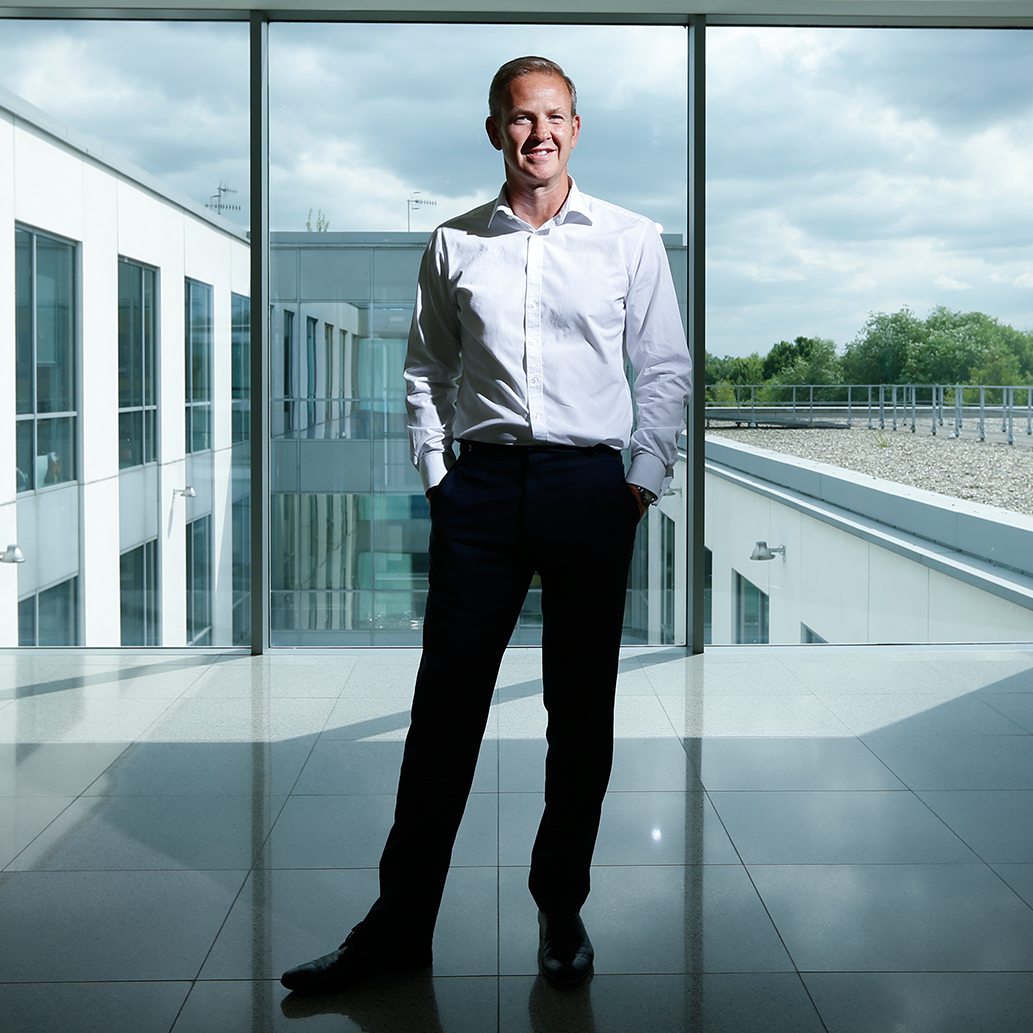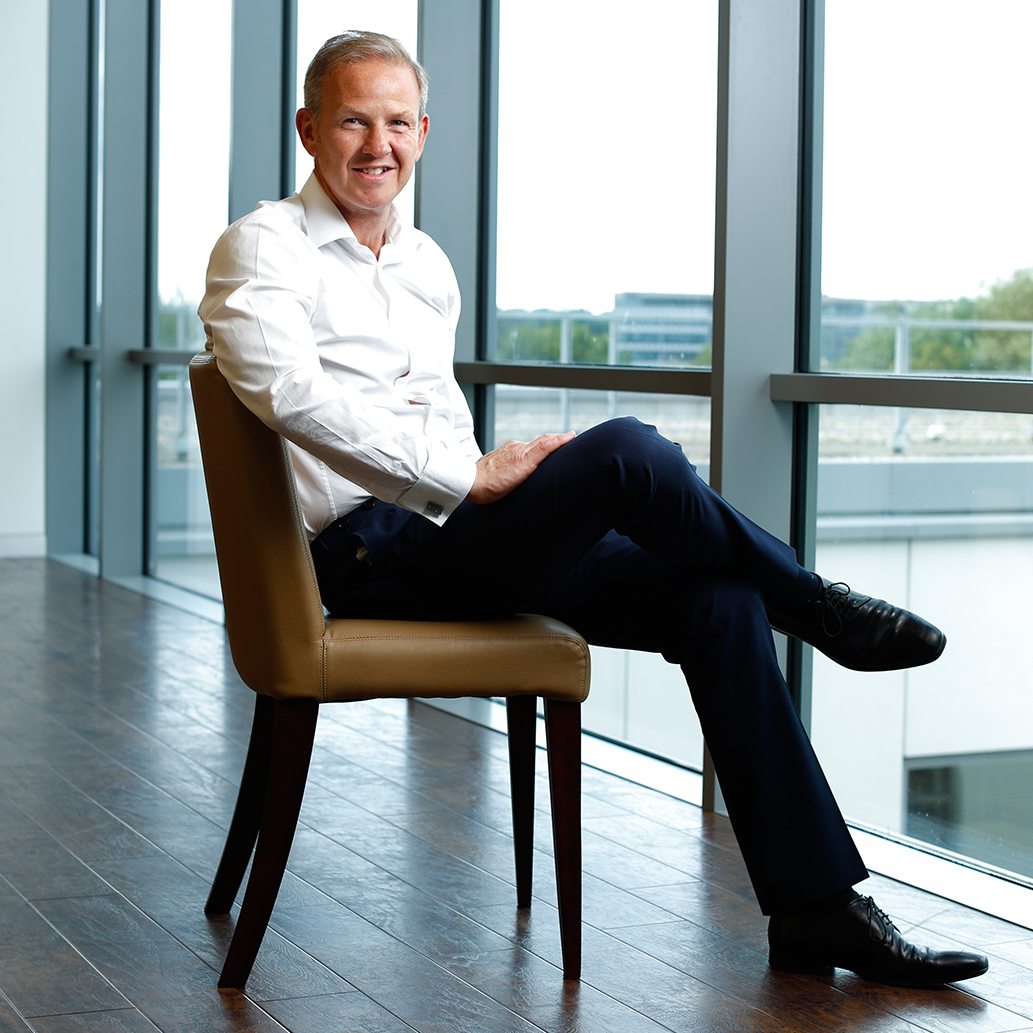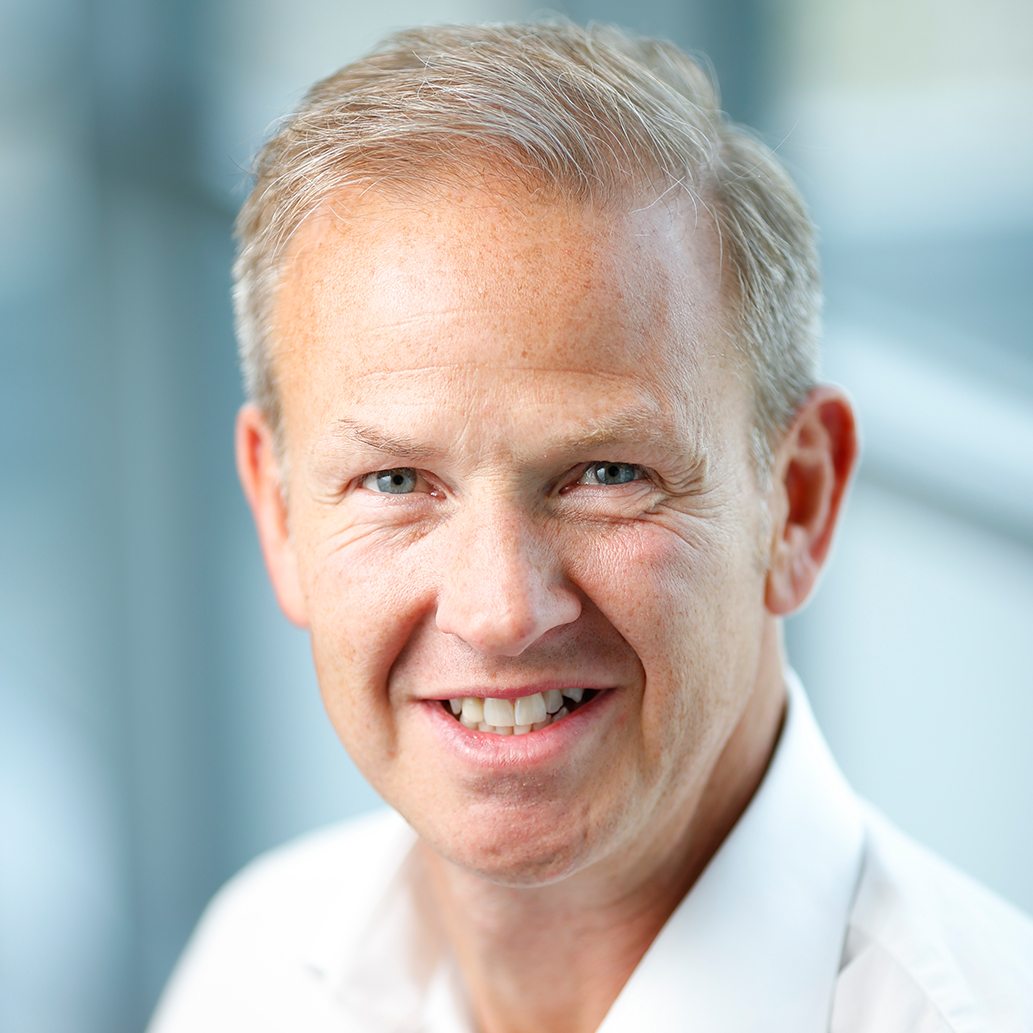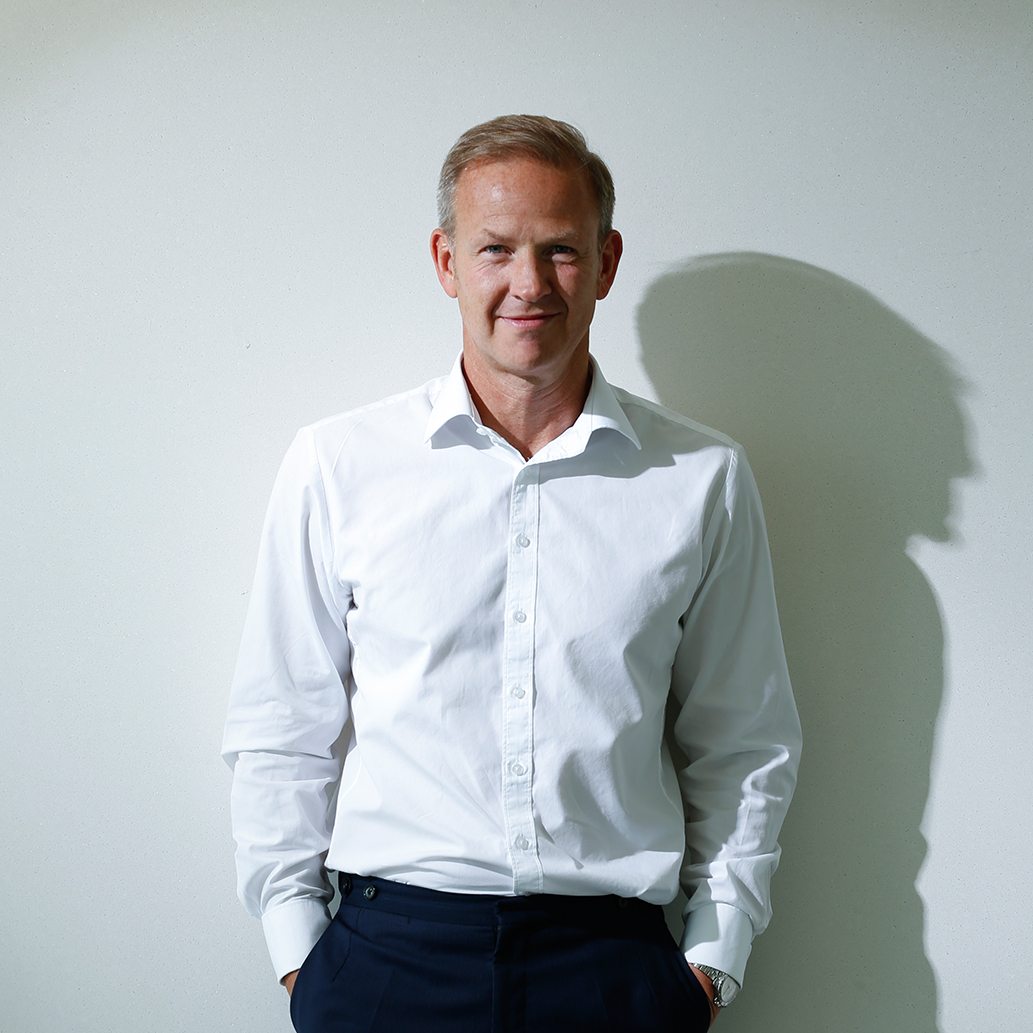Chris Give us an idea about your early career and why you chose HR.
My early career was in retail management at Sainsbury’s, and then I moved on to Texas Homebase. Running a super-store in my early twenties was a real challenge; the hours were long and the work was hard, but it was also very grounding for a career in people management. I was fortunate enough to be given an opportunity to become more involved in the implementation of retail systems, so the position we took was pivotal between the techies, who were developing the systems to run the operation, the admin people in the business who dealt with the behind-the-scenes logistics functions and business operations, as well, of course, as the customer-facing teams. That’s when I developed a real passion for training and development, and a fascination with its impact on both myself and my peers. This was the early 1990s, and training and development, as we know it today, was all quite new.
Later I had the opportunity to specialise in management development, initially with Texas and then later with Ladbroke Group, who owned Texas, as well as Hilton Hotels, Ladbroke Racing and a property division. I then joined Coopers & Lybrand, HR Consulting for just over 18 months and it was during this period that I got heavily involved in change management, working with a number of organisations that were undergoing significant change, including; Deutche Bank, Unipart and SAP. Much of my work was mapping out processes and working with the businesses through change management programmes, and learning this aspect of business has enabled me to draw on the experience time and again throughout my career. I was then headhunted to work for Granada, primarily the motorway services, and then the restaurants and services division, and really this was my first move into an HR director role. Granada was a very tough business in which to cut your teeth, particularly as I was on a sharp learning curve as an HRD.

There was a great deal of change in the corporate world in the early 1990s and Granada typified that.
Absolutely, change dominated the commercial landscape during this era and Granada was in the process of acquiring Forte Hotels at the time I joined the business, and my role became focused on the whole restaurant division, which was both interesting and challenging. Granada was something of a blueprint for what we grew accustomed to, not just in this sector, but business in general. It was a diverse conglomerate, operating in a range of sectors including; hotels, TV, rentals and a restaurant division. Even the restaurant business itself consisted of a varied portfolio of businesses in several markets including; contract catering, Little Chef, Harry Ramsden’s and Travelodge brands, plus the motorway services division. On top of that there was a good deal of merger and acquisition activity with small brands, run by entrepreneurs, being integrated into the core business. Much of my time was spent identifying the parallels between all these brands and activities, and setting up support functions that were flexible, yet capable of operating across many strands. It was definitely a tough task, but I had an excellent mentor in Stephanie Monk, who was Group HR Director at the time and I learned so much from that experience.

In terms of historic precedent, there wasn't much to call upon in terms of experiential comparison, how did you decide on the best plan?
Well, the core priority was creating value, so the great HR challenge here was trying to maintain balance and equilibrium between the issues of ‘people vs. profits’. When the box is being rattled hard there’s a danger that good HR practice can be shaken to bits, particularly when so much of the onus is on profit. So I kept a clear and simple vision. All along the journey, the HR objective, which always had to be based on tough commercial objectives, was not always an easy argument to win. But in terms of learning how to hold the line under such unrelenting business pressure, this experience has proved invaluable throughout my career.

What was the plan for moving HR out of the trench and into the battlefield?
Unquestionably, to keep HR high on an agenda in an arena where there was a lot of powerful and aggressively-argued sets of priorities, all vying for position. This was my first board appointment and, at first, HR hardly had a voice. I quickly realised that the only way I was going to get heard was by aligning HR to the fundamental priorities of the business, and I believe this has been the journey for HR right across the profession. Eventually, if through your endeavours and determination you are able to demonstrate bottom line and operational improvements, sure enough, your voice is heard. But it’s never easy. The best plan was to keep the objective and the message clear, simple and focused on the main task. That was chiefly about applying retail skills into the food and beverage environment, about merchandising and, most imperatively, customer focus. And when you compare where motorway services were in the 1960s and 70s to today, it is an entirely different customer proposition. One of the significant changes that I was involved in was the introduction of brands such as; Burger King and Marks & Spencer into the space. This significantly professionalised the sector, and of course required core talent in the overarching operation. Many highly-capable people were recruited in from high street restaurant chains and the pub trade at this time.
What were the key drivers of HR winning hearts and minds on the Board?
I think it was about aligning with the ambitions of the business and being able to demonstrate success, so that everything we did was clearly of benefit to the organisation. It came down to demonstrating on a consistent and measurable basis, how HR was achieving operational improvement, raising standards and contributing to customer satisfaction, which of course are the basic foundations for achieving sustainable profits. This moved HR from a day-to-day tactical function to a fully-strategic one. Operationally, the business needed the best people, and we needed to take care to recruit people with precisely the right focus on service. These people also needed to be fully-engaged once they were employed, and so we did a lot of work relating to clear and regular communication. As the business became a 24/7 operation, there was a good deal of emphasis on infrastructure, shift patterns, and changing customer perceptions on service through engaged staff. Some people would argue that the sector had a poor profile and that needed to change rapidly.
Then the big game changer occurred when Granada merged with Compass, the world’s biggest contract catering business. The synergies between the two companies, which were both essentially service-focussed businesses, were obvious and merging two businesses with compatible skillsets and strategic advantages made a lot of sense. I worked on the integrations of the restaurant businesses, and really revelled in the cultural challenges of the merger, which involved looking at the best elements of both sides, and preserving those in the new operation. As the tasks were achieved in the merger programme, my role then moved on to executive development, and this was my earliest experience of dealing with different cultures in leadership. I was building learning and development, of course essential to achieving a successful outcome and should never be overlooked. Fundamentally, you have to get under the skin to really understand what makes people tick. It goes way beyond what is written down and what the processes looks like. It’s not a matter of ‘what’s right and wrong’. When dealing with businesses based across many geographical regions, with many varied styles of leadership and a range of ways to get things done, it’s important to make sure that diversity is valued and that these varied styles are all allowed to contribute, to make a more effective organisation.
Tell us about how SSP was formed from the merger?
SSP was created as a separate, customer-facing division within Compass, which specialised in operating at airports, rail stations and motorway service stations. The business had already been managed geographically, and had a broad spread across a range of markets, and by bringing together these elements together into one group, it was clear that we could establish a market-leading organisation. A couple of years after SSP was founded, the sales process began, and we completed the leverage buyout in 2006. We’ve been a private equity business since that time. The business has grown rapidly, and today we employ over 30,000 people, in more than 2,100 units, in 140 airports and 250 rail stations, in 30 countries around the world. Our brand portfolio includes some of the world’s best-known names, including; M&S Simply Food, Starbucks and Burger King, as well as our own in-house concepts including; Upper Crust and Caffè Ritazza. We also create and operate a number of stunning individual concepts, such as the Center Bar at Zurich, our Montreux Jazz Café in Geneva and, in the UK, a very on-trend bar called The Grain Loft at Manchester Airport. My own personal favourite is a stunning restaurant – Le Train Bleu at Gare du Lyon in Paris. If you haven’t been there you really should try to go.
Give us an idea of the key objectives and what HR was called on to bring about.
One of the primary considerations was the fact that the new operation was a very different business model from the core Compass business. Also, the whole financing side was different and it was a challenge for individual country MDs to manage. The market clearly offered considerable scope for expansion and we were convinced that the retail business could drive a lot more value, and the subsequent sales growth figures supported this belief. So from an HR view, once again it was about recruiting for and developing the leadership, talent and capability to achieve the push. We recruited talent from restaurant, retail and hotel backgrounds across the board. Looking at the detail, the business franchises in most of the airports and railway stations were on contracts of about five years in length. Building client relationships and managing tenders was something Compass did well, so we had an established expertise. As a specialist, SSP provides food travel expertise, by this I mean a detailed understanding of the complexities of the travel environment, and the needs of the consumer within that environment.
Our consumer research is unprecedented in its scale within the sector, and it allows us to really get under the skin of how the travelling consumer thinks and feels, whether they’re travelling on business alone, or heading off on holiday with their family. We’re also able to provide the infrastructure and support to achieve 24/7 service that is effective and consistent, in what is often a highly-challenging environment. We understand how to build the menus and to ensure the right staff and products are in the right place at the right time, as well as how to support a brand, whether that be an established super-brand such as Starbucks, or a local name, making its first foray into the travel sector. Of course, a brand like Starbucks already has established systems and procedures, so it’s more of a case of working on relative strengths. But it’s always important to give this over-arching support, without choking off the identity of the brands, and a big part of that is getting new brand-partners on-board. So we have worked hard on induction programmes, working with the brands to identify the common elements and service principles that will translate into the airport environment, and this process, as well as our ongoing training and development programmes, have become a core element in the ongoing success of providing good service and customer satisfaction.
From an employment perspective, this sector has the reputation for being transitory as opposed to a long-term career prospect.
It has improved considerably over the years, and today SSP is remarkably successful at attracting talented people with careers in mind. More recently, due to the work that we and other businesses have achieved, in terms of, amongst other things, learning and development, the leisure sector has improved its attractiveness for talent, to a point that it is now a very competitive recruitment environment. SSP has made significant investments in colleges and apprenticeship programmes, and very quickly this has paid dividends. But there is no place for complacency and so we are constantly working on aligning our employer brand with the business brand. When you think about food and travel, these are exciting, high-profile activities, and in our experience, there are talented people who are very switched on to the potential of working in this space. We have close affiliation with more than 50 colleges and schools internationally, and we intend to build on that. Looking at the bigger picture, I see such collaboration as being only a good thing for businesses, allowing us to bridge the gaps between education and the workplace. It also helps us to identify the talent, get people fresh out of education into apprenticeships and traineeships as quickly as possible, and provide on-going training and development. We now offer training from apprentice to foundation degree level, meaning all our staff are encouraged and supported in reaching their full potential at all stages of their career.
What in your experience, are the fundamental building blocks to sustain this scale of grand expansion and development?
First and foremost, success begins with good leadership – sounds obvious but you cannot build and develop anything at any level without it. Then it is building an understanding of customer expectation, and aligning that with the expectations and needs of the business. A big part of that is working on the strengths of the local cultures, alongside the way SSP expects the individual businesses to operate, which means identifying what is ‘hardcoded’, as well as areas where there can be flexibility, so we have put a lot of emphasis on that. At the core of all that is to get the framework right and to make sure that this is interpreted correctly. Then going forward, it’s all about consistency and creativity, and always looking at ways of doing things better. It also stems from having a clear vision and purpose, and at the core of that is trust, especially in an environment where expansion and change are constant. You need clear communication to filter up and down the organisation, and you need to keep people on course through continuous L&D.
Increasingly, I see the role of SSP’s HR as providing the platform and the flexibility to allow both local cultures and the framework of the business to co-exist. In a business with the scale and scope of ours, usually when one of our team has an issue to address, it’s likely that someone somewhere in the business has met and resolved that issue before and can share that experience. So we need to facilitate this process, shifting our mindset from a hierarchal to a more democratic approach. We also need to provide the platforms for this process to take place, such as our new IBM Connections communications tool, which has revolutionised the way people collaborate and share their views and experiences at SSP. It’s important to understand what ‘true engagement’ really means. What we can find out from employee satisfaction surveys is really just the tip of the iceberg, but we need to get under the surface and identify how our employees really feel about their role, how well they feel equipped to do it and what gets them out of bed in the mornings. Increasingly too, there’s the awareness that talented people don’t want to be pigeon-holed, and so we are constantly monitoring people and encouraging career movement around the organisation where there is mutual advantage to do so. You cannot satisfy everyone’s career aspirations all of the time, but we can make sure that people know that they have a clear career path and that there is a plan for their development in place.
What's the next stage for the business?
Now is a very interesting time for SSP. We have a new Chief Executive, Kate Swann, joining from WHSmith, and for HR and our peer departments, it’s a continued drive to improve the business proposition, the customer experience and building the competency, but at the same time, continuing our expansion into new locations and building relations with the brands that consumers know and love. One thing we have never taken for granted is that consumers will just keep coming. There is a lot of competition out there and increasingly, technology is making consumers aware of that. We are investing significantly in technology and social media, so that we are competitive at reaching customers with our messages. That is unquestionably a challenge for the future – to be engaging on technology platforms. Also, we will continue to expand in territories including US and in China where things are developing very quickly. So we have been working very hard at building the infrastructures and supports in those markets, mindful of the wide and varied cultures. What is required in terms of leadership, capabilities and resources can be quite different, and different skills sets are required depending on whether we’re aiming for growth from new clients, consolidation, or developing existing business. Whether in retail or manufacturing, the notion of ‘I am the company’ is increasingly becoming the norm. We have to engage people fully so that this can be translated into improved customer service and stronger business performance.












